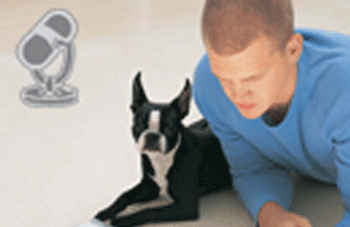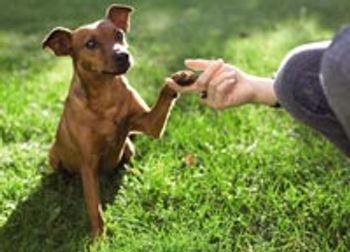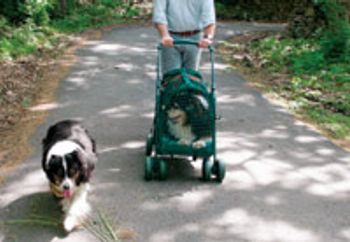
Image Quiz: Can you clue in on canine anxiety?

Image Quiz: Can you clue in on canine anxiety?

How to reduce the risk.

There are no bad patients-just fearful and stressed ones. By remembering that, watching for warning signs, and taking a less-is-more approach, you can help patients and keep yourself safe.

Keeping animals in your clinic or hospital as calm and comfortable as possible should be the goal of the entire staff.

Canine body language isn't necessarily easy to read.

How effective is "clipnosis"?

A commercially available synthetic canine pheromone is marketed to produce a calming effect in dogs encountering stressful situations such as kenneling, separation anxiety, and fear.

A reader tip for handling fractious cats.

Dogs with noise phobias can benefit from drugs given before or during an anxiety-provoking event or even as lifelong daily drug therapy.

Exposing dogs to a synthetic pheromone before surgery may help the dogs be more comfortable perioperatively.

Veterinary dentist Dr. Daniel Carmichael weighs in on whether tooth extraction is viable for treating an aggressive dog.

The term dominance-related aggression is not only simplistic but is often inaccurate.

How to recognize problems and implement appropriate client interventions.

For many years, we taught clients who live with dogs who bite that the problem is likely 'dominance' – the dog is possessing over space, food or other resources to establish a hierarchical position. While some aggressive reactions may be due to the dog's perceived need to guard a resource, there is no evidence that interactions with humans aim at establishing rank.

Cats who eliminate outside the litter box pose serious problems for owners that may force the family to place, surrender or euthanize the cat. In many cases, treatment is highly effective with resolution rates between 80-90% if the problem has been properly diagnosed.

Aggression to family members or persons who are familiar with the aggressive dog accounts for the majority of cases presented to veterinary behaviorists. Causes for this behavior vary greatly and may include competitive aggression, fear aggression, pain induced aggression or maternal aggression.

One of my dear friends and colleagues – a veterinary cardiologist – often teases me that behavior can't really be that hard. She thinks that a behaviorist's work rarely exceeds the advice to add another litter box. While it's true that implanting a pace maker is more impressive than 'adding a litter box', I like to emphasize that I'm able to keep more pets in their families and alive when we compare our case outcomes. This hasn't always been the case.

Even the best veterinarian will eventually face a client who is disappointed, angry or frustrated. In this session we will discuss examples that you bring to the table, such as 'Rocky', a ten year old male Springer Spaniel had bitten the clients' two year old daughter.

Free ranging cats have the freedom to choose their preferred elimination location. They would prefer to avoid eliminating in a spot another cat has used (unless they are marking it). Free ranging cats will not urinate and defecate in the same area, and they do not like to eliminate in public places or cave-like settings.

What's the significance of piloerection in cats?

Are we paying enough attention to cats-both young and old?

What to investigate before you refer patients to trainers.

The question of whether dogs have become too "domesticated" has researchers in Australia putting canines to the test for answers.

Dr. Melissa Bain examines whether clients are contributing to pets' bad behavior.

Diet, supplements, drugs and cognitive and physical stimulation all play roles.